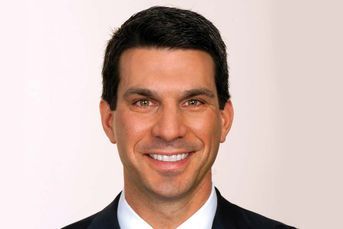Fractional-stock offers grow, but who cares?
The marketplace for custom portfolios of fractional stock shares is getting crowded even though nobody knows whether investors…
The marketplace for custom portfolios of fractional stock shares is getting crowded even though nobody knows whether investors will care.
The latest company to join the fray is MyStockFund.com, based in Reston, Va. It’s dipping a toe into the market very gingerly, offering its online portfolios in a pilot program through Credit Union One, a 110,000-member group in Michigan.
A handful of other companies have gotten into the market this year, and others are planning to enter soon.
But how much of investors’ assets can these companies grab? That’s a number no one has a handle on. The market is so new that it’s unclear whether consumers are even buying into the idea yet.
“I think there are numbers of investors out there that are looking to own individual stocks,” says Scott Berry, an analyst at Chicago-based Morningstar Inc. “But I don’t know if it will be enough to sustain a large number of players in this market.”
Those up and running include Foliofn Inc. in Vienna, Va., and Menlo Park, Calif.-based E*Trade Group Inc., through its recent purchase of Electronic Investing Corp. in San Francisco.
And like anything that poses a threat to the mighty mutual fund industry, analysts are watching these burgeoning deals with a keen eye.
Companies like MyStockFund are giving investors a way to own baskets of stocks without having to deal with the potential pitfalls in mutual funds — capital gains, poor management picks and high expenses that eat away at returns.
These portfolios also let investors own a piece of corporate America without buying large blocks of shares – or even full shares – at one time or doling out hefty fees for each trade.
no handle on volume
So far, E*Trade is the only big-name company to show interest in the market, and analysts say most powerhouses will probably sit on the sidelines for a while.
“I think the big players are keeping an eye on Folio to see what kind of success it’ll have,” Mr. Berry says.
Unlike Foliofn and several other competing startups, MyStockFund is eschewing direct online sales to avoid the associated costs and will offer its product only through banks, large corporations and the like.
“There’s a need to spend money to build a brand name so that you have the retail awareness, and then there’s the cost of advertising,” says Stewart Christ, president and CEO of MyStockFund’s parent company, OnLine Investments Inc.
“We’ll be giving up this retail brand, but we’ll be dealing with organizations that have huge constituencies,” he says.
Avoiding head-on competition in the direct retail market is likely wise, says Mr. Berry. “They’d be playing catch-up at this point. Finding a way around that is probably a good idea.”
Yet the institutional strategy isn’t unique.
Indeed, while Foliofn – launched in May by former Securities and Exchange Commission member Steven M.H. Wallman – already has an advantage in the direct retail market, it also plans to start a website this fall exclusively for advisers.
One potential problem, say observers, is that while opening Wall Street’s door to Main Street sounds noble, many of those investors will still need advice — something that MyStockFund won’t provide.
advice called crucial
“To the extent that MyStockFund is looking to partner with providers that will give advice to investors, it could be in pretty good shape,” says Jaime Punishill, an analyst at Forrester Research in Cambridge, Mass. “But I just don’t think there’s that many people who are going to buy stocks this way otherwise.”
Despite the hurdles, MyStockFund executives are confident that they are onto something big.
“There have been barriers to everyday investors owning stocks,” says Mr. Christ. “We believe there’s a huge market there for mainstream America. We’re part of a revolution.”
MyStockFund now offers stocks only from the Standard & Poor’s 500 stock index, but it plans to expand.
Its minimum investment is $10 to purchase a fractional share. Its annual flat fee for unlimited stock purchases will range from $149 to $199. Selling shares, however, will come with a fee.
“This is for the long-term investor,” explains Mr. Christ.
MyStockFund will give its partners three choices in their collaborations: simply providing customers with a link to the MyStockFund site, co-branding a site or letting the partner put only its name on a site.
The company will not offer prefabricated portfolios.
Mr. Christ expects to announce several new partners this quarter.
Learn more about reprints and licensing for this article.





